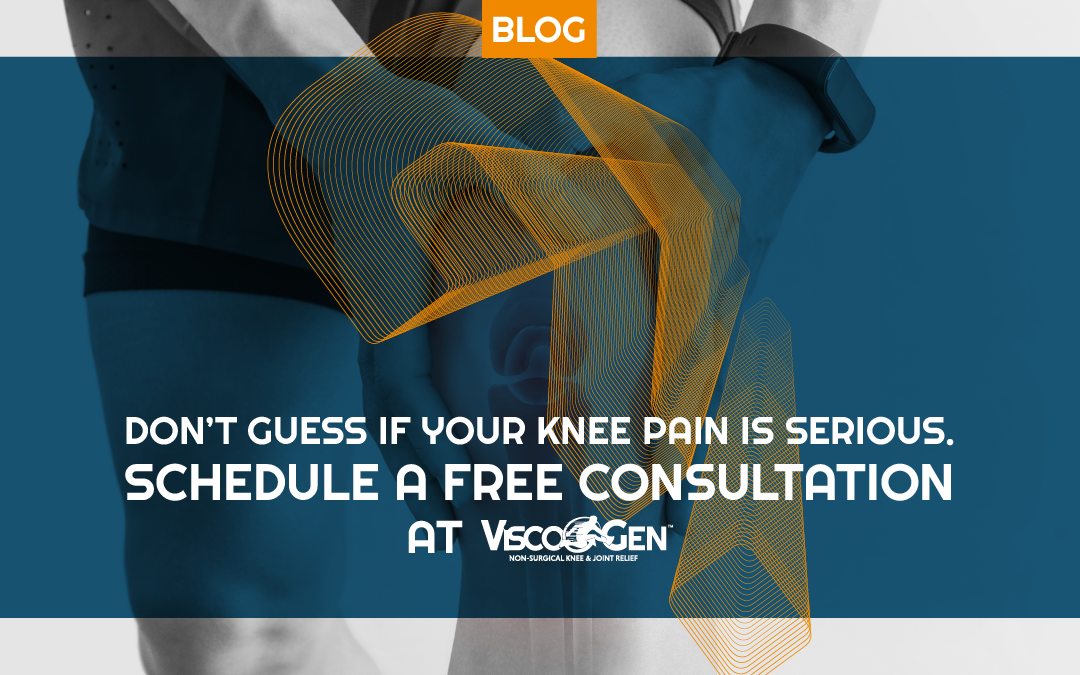Knee pain is a common condition that can interfere with your health and lifestyle. It ranges in severity from mild cases that heal independently to severe pain that requires medical attention. People of all ages and levels of activity can experience knee pain caused by injury, overuse, and diseases like osteoarthritis.
You may notice common symptoms that accompany knee pain, such as inflammation, redness, and stiffness that limits movement. These, and the following tell-tale indicators, help point to the root of the problem and indicate when to seek knee pain treatment from an expert.
What Does It Mean If Your Knee Is Grinding?
That grinding and crunching happening when you move your knee is called crepitus and while often harmless, it may signal that there is a larger problem. It happens when damage to the cartilage or soft tissues prevent the bones of the joint from gliding smoothly. Causes include:
- Torn cartilage, tendons, or ligaments
- Air bubbles inside the tissue
- Osteoarthritis
An audible sound sometimes accompanies the sensation when the knee is extended or bent. If you have knee pain or swelling with crepitus, speak with a medical professional as soon as possible to reduce the chances of worsening symptoms.
What Does It Mean If Your Knee Is Aching?
Aching, painful knees can indicate anything from normal wear and tear to an injury. Aches often stem from one of these common knee problems: a strained or sprained muscle or ligament, tendonitis, torn cartilage, or arthritis.
If your knee feels warm, looks swollen, or won’t flex or bear weight, seek medical attention for a proper diagnosis and long-lasting treatment you can trust. Untreated problems can worsen over time and potentially cause permanent damage.
What Does It Mean If Your Knee Is Popping?
The occasional knee-popping noise is all part of aging. However, if you experience pain or your knee gives way when it happens, you could have one of the following:
- Loose cartilage
- Swollen tendons
- Worn cartilage
- Torn meniscus
With or without pain, knee popping is worth a trip to your doctor to rule out any underlying problems that might cause further damage.
What Does It Mean If Your Knee Is Swollen?
Swelling in the knee has many potential causes, including infection, injury, overuse, or arthritis. Self-care treatments at home are usually enough to manage minor problems. If you have a fever, redness, pain, or you can’t move or put weight on the knee, you should seek medical attention as these symptoms can point to something more serious than extra fluid collecting in the tissue.
How ViscoGen™ Can Help
Treatment for acute and chronic knee pain too often means invasive surgeries or knee replacements that come with a whole host of potential issues. Fortunately, our doctors at ViscoGen™ have created a non-surgical treatment called KneeVisc 5® that is proven effective for arthritis and chronic knee pain treatment.
This innovative and proprietary treatment reduces pain and inflammation, realigns the joint, strengthens the knee, and improves mobility. We have helped thousands of patients in Lake Nona and the Orlando area find long-lasting relief and get back to living their best lives faster by avoiding surgery.
Request your ViscoGen™ FREE Consultation today or contact us to learn more about our full range of treatments!





Thanks again!